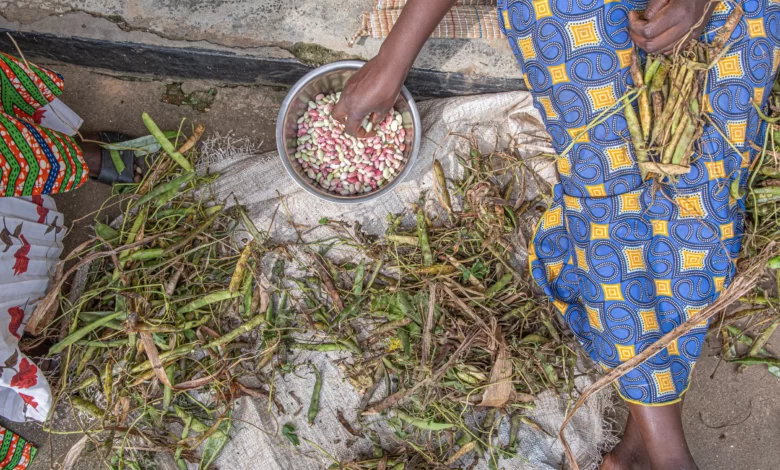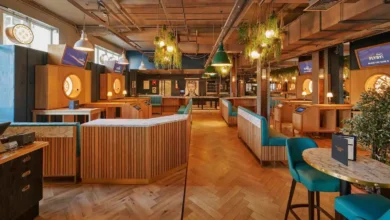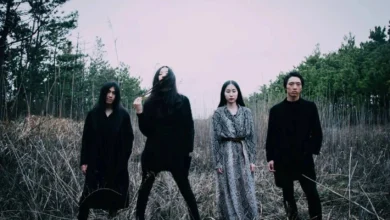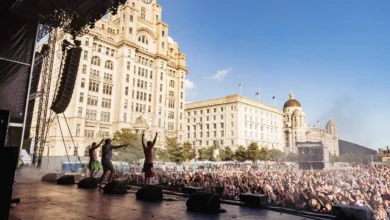
LOOK Climate Lab 2024 Programme Announced
LOOK Climate Lab 2024, a biennial programme exploring how photography can be a relevant and powerful medium for talking about climate change, will take place from 18 January to 31 March.
Once again Open Eye Gallery will transform the gallery into a lab: bringing together researchers and artists to test their ideas and encouraging their audiences to discuss systematic changes needed for dealing with the climate crisis.
This year they’ll show projects working with the topics of rewilding and industrial heritage, growing food and regenerative farming, transport, pollution, and impacts of war.
The events programme includes sustainable photography and eco-poetry workshops, artist talks, poetry readings and panel discussions. All the events are free.
Gallery 3 will be turned into a cinema, showing Grow to Eat, Imagine Bamboo and The Balance Garden – short films about community growing, sustainable building and gardening to promote mental health.
Max Gorbatskyi, Open Eye Gallery’s curator, said: We’re affecting the world around us, often in ways which we don’t even recognise. When taking a photograph today, it is probable that you capture a result or a cause of the climate crisis since its manifestations are ubiquitously around us.
Photography is capable of registering and representing, being essentially a trace itself. It provides us with a means to trace the changes we cause or the changes we can make to tackle climate change today. Photographs can visualise the approaches and possible actions we can take to address the problems and bring change.
We’ve invited artists, researchers and partners from different domains to share their observations and ideas on how we can make human-nature relationships more sustainable and fair.”
Gallery 1 hosts projects working with the impacts of war, industrial heritage, aviation and their interconnections with climate change.
Stephanie Wynne explores how the structural ‘waste’ of WW2 was disposed of or reused, looking at tonnes of rubble from the bombed homes of Liverpool on the coast at Crosby.
Nazar Furyk shares his series from visiting the Kherson region, including immediately after the blow-up of the Kakhovka Hydroelectric Power Plant dam. With the dreadful current conflicts around the world, can post-conflict waste be reused, recycled and, more importantly, reduced?
Mishka Henner’s work with AI (from his residency with Energy House 2.0 at the University of Salford) alludes to the decisions made in government offices around the world that have brought us to this present condition, and John Davies looks at the sky above Liverpool and Lancashire, showing condensation trails and contrail-induced cirrus clouds produced from jet engine exhaust fumes. Scientific research suggests they are the largest net warming component of aviation emissions.
Mario Popham and Lizzie King look at the post-industrial landscape in Bickershaw and Wigan Flashes. Mario Popham uses a combination of photographs, site-specific materials and processes like coal and rust, and collaborations with AI to consider the complicated beauty and history of a postindustrial green space, while Lizzie King focuses on the non-human living species that have adapted to live and thrive in what is now a site of stunning post-nature beauty. This work is part of the residence programme in Open Eye Hub in Wigan.
Gallery 2 shows projects working with the topics of food sovereignty, community growing and nature-friendly farming.
Johannes Pretorius documents three generations of a family working on their organic dairy farm in Cumbria, who also manage kilometres of species-rich hedgerows and are actively rewilding woodlands and wetlands. This work is part of We Feed The UK – all 10 projects from around the UK will be revealed on the outside walls at the celebration event on the 8th of February. Meanwhile, the visitors can see photos from We Feed The World, commissioned by Gaia Foundation, with stories from agroecological, small-scale farmers who not only provide the majority of the world’s food but also offer solutions to many of our current crises.
Also in Gallery 2 environmentalism-focused photographer, community food grower and activist Hellen Songa shares glimpses from her long journey through Africa to discover the social and creative ecological activities of local communities in her mother- and fatherlands – Rwanda and Zambia. Meanwhile, socially engaged photographer Gwen Riley Jones has been collaborating with growers in Rochdale community gardens to share their stories of growing and what it means to them. This project is in partnership with the Royal Horticultural Society.
For more information about LOOK Climate Lab 2024 visit openeye.org.uk/whatson/look-climate-lab-2024/







